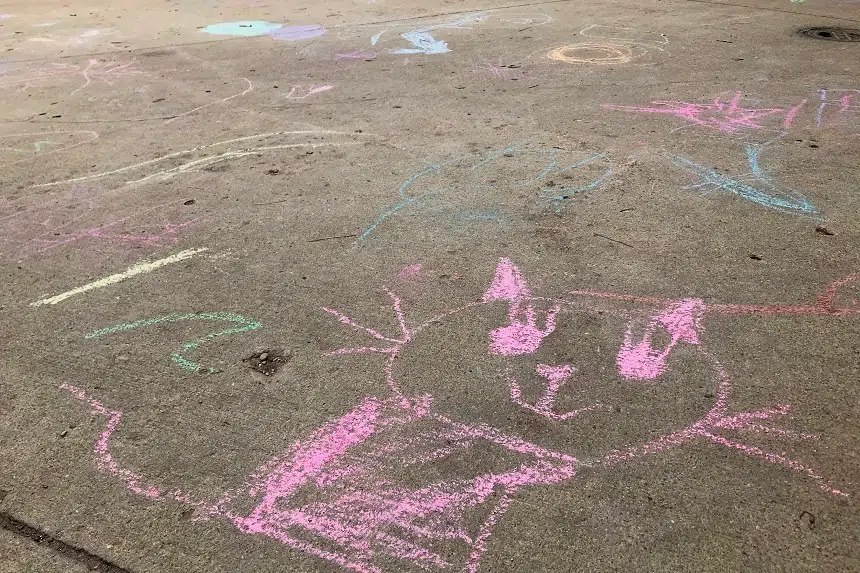After what seemed like a turbulent weekend, evacuees from northern Ontario appear to be settling in to their accommodations at the University of Regina.
That’s according to provincial officials working with the evacuees.
Over the weekend, there were reports of damage done to the dorms the people are staying in, and four people were arrested and charged with assault in three different incidents. But on Tuesday, Duane McKay — vice-president of operations for Saskatchewan’s public safety agency — said that Monday night had been relatively quiet.
“People are settling in. You watch the children with chalk, the last day or so, completely colour the entire area of sidewalks around, they’re playing soccer and seem to be having a good time, and if you walk by, they will give you a high-five,” McKay said during a conference call Tuesday with media.
McKay said a command post has been set up at the university involving all of the groups helping the evacuees, including liaison officers from Ontario, tribal councils in Saskatchewan, social services, and the Red Cross. McKay thinks that and the stronger communications it has provided have helped.
The university dorms have sustained some damage, according to McKay, but he described it as slight, saying it’s nothing worse than what they might expect from a sports team.
The Ministry of Social Services has been working to provide all the necessities for the evacuees, as well as activities for them.
“I’ve noticed that there are groups of people sitting on the lawn, men playing guitars for the kids. I’ve seen kids playing in the hammocks, laughing hilariously with each other — people are definitely settling in and starting to enjoy each other,” said Deanna Valentine, co-ordinator for emergency social services with the ministry.
McKay said there’s less fire activity around the Pikangikum First Nation, where the evacuees are from, and rain on Monday helped the situation even further. However, a lightning strike at the community’s water treatment plant is requiring some repairs there.
According to McKay, the province is in the process of organizing and making manifests to get the evacuees back home, but it’s the Pikangikum leadership who will make the final decision on that.
“They’ll obviously measure the requirements for people to return, and when they give us word that there is a number of people that can return, obviously we’ll get those people ready to go and get them onto flights back there,” said McKay.
McKay said the evacuees’ own community is where they’ll feel most comfortable and safest, so the goal is to get them back there as soon as they can.







